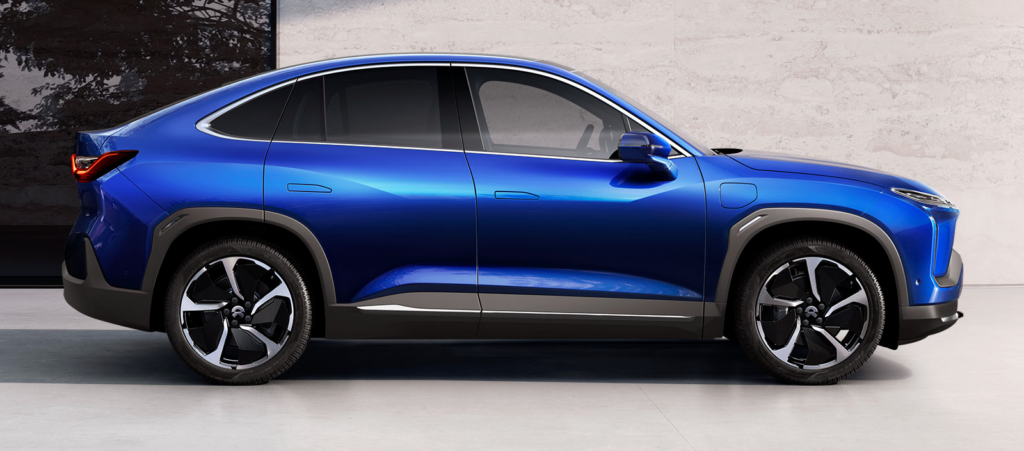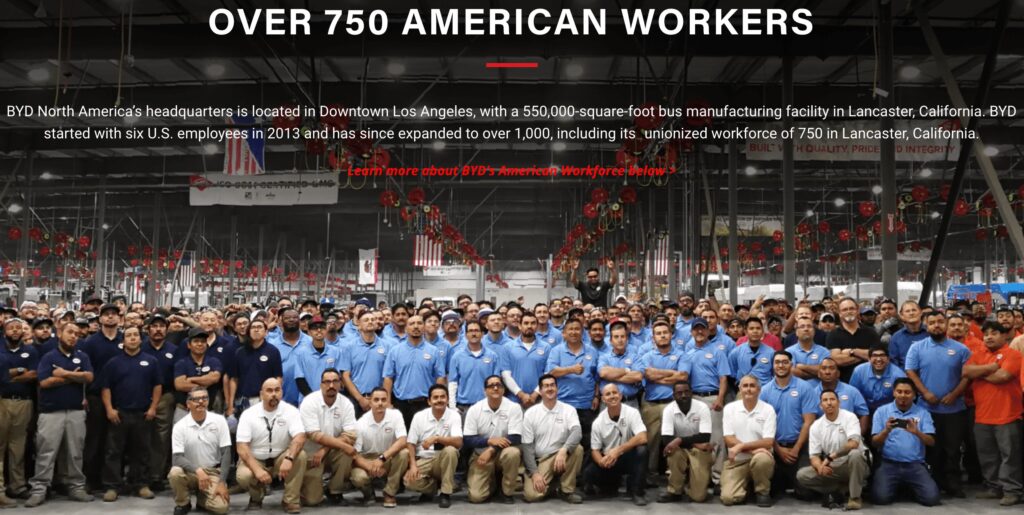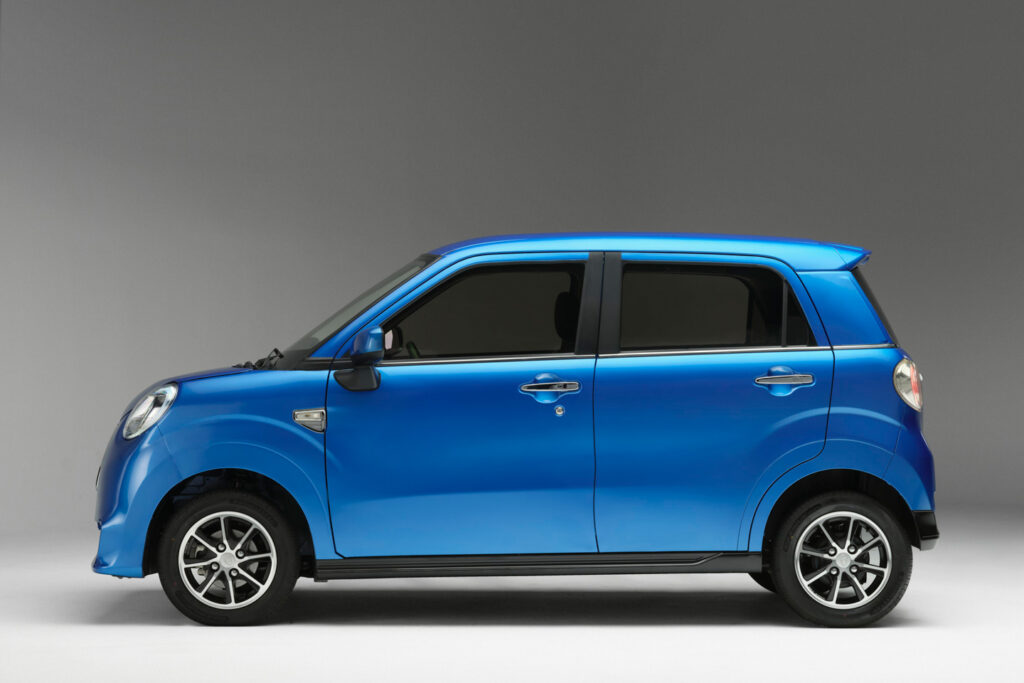One of the proposed changes to the federal EV tax credit that has flown a bit under the radar is also one of the most political and protectionist in nature. Effective January 1, 2022, electric vehicles with final assembly* (see definition at the end) in China would no longer qualify for IRC 30D (federal EV tax credit).
To be clear, this is not a phaseout of the tax credit, but would be an immediate hard line in the sand once the ball drop finishes this year in New York’s Times Square. The intent of this provision is clear as President Biden and lawmakers in Congress have stated their concerns over China taking the lead in the production of electric vehicles, batteries, and autonomous vehicle technology.
US insistence that there must be American production to qualify for subsidies is straight out of China’s playbook. The PRC subsidizes and offers rebates only on EVs manufactured in China. 99% of the near 3 million EVs to be sold in China this year will be EVs made in China.
— Michael Dunne, CEO – ZoZo Go (A Dunne Automotive Company)
China is the largest market in the world for passenger vehicles but its government also has very aggressive goals to dominate the global automotive stage as cars and trucks transition into hardware and software on wheels that are powered by batteries. China’s CATL is already one of the world’s leading suppliers of batteries for electric vehicles, including to OEMs such as Tesla, Volkswagen, and Geely. And the company recently announced plans to raise $9 billion in a private placement for future expansion.
For a while, Chinese authorities flat out prohibited Chinese companies from buying any batteries not made in China, according to Michael Dunne, CEO of ZoZo Go. But Dunne also pointed out to me that the “bigger picture beyond EVs is that 95% of the 21 million light vehicles sold in China tin 2021 — will be built in China. Imports are essentially persona no grata, he said.”

“95% of the 21 million light vehicles sold in China in 2021 — will be built in China.
— Michael Dunne, CEO – ZoZo Go
Imports are essentially persona non grata, he said.”
And while Tesla has emerged as the largest seller of EVs in China, a number of startups and joint ventures with western automakers are growing quickly. According to SupChina.com, the 10 largest EV producers in China based on domestic sales are:
- Tesla
- BYD
- SAIC Motor
- SAIC Volkswagen
- SAIC-GM-Wuling
- NIO
- Xpeng
- Li Auto
- WM Motor
- Geely
Four of these companies — BYD, NIO, Xpeng, and Li Auto — are publicly traded on US stock exchanges and it is expected that we will see some of them enter the US market in the next few years. (Geely, through its majority-owned companies Volvo and Polestar are already in the US – more on that later.) BYD already sells electric buses in the US though its bus division, but they are also made in California in a factory employing 750 unionized workers. Whether or not Chinese OEMs employ unionized factory workers (none of the existing foreign automakers with US factories employ union workers today), to reduce or eliminate trade tariffs, political issues, and the loss of tax credits — these automakers may almost be forced to build their vehicles in US factories.

What Is the Near-Term impact of The Loss of the Tax Credit for EVs Assembled in China?
Because there are only a few Chinese-made EVs available now and likely in the near term in the US, there will be very little actual impact on automakers and overall sales of electric vehicles in the US. According to our EVAdoption research, as of January 1, 2022 there may be only four EVs (and possibly just two) for sale in the US that have final assembly in China. Currently only the Polestar 2 and Volvo S90 T8 PHEV are being produced in China for sale in the US. The Polestar 1 is in its final small, limited production run and all or most units are likely spoken for.
- Polestar 1 (production is ending)
- Polestar 2
- Volvo S90 T8
- Kandi K23 (not available yet – TBD)
- Kandi K27 (not available yet – TBD)

Polestar does not report sales of its vehicles in the US, but EVAdoption forecasts Polestar 2 sales in 2021 will be around 2,000 units. Volvo also does not break out US sales of its S90 T8 PHEV, but we are estimating 2021 sales at roughly 125 units.
The two models from Kandi have not yet reached customers and Kandi’s CEO declined to comment in an email response on either the status of its small, affordable EVs or the potential change in the tax credit. Some industry observers I spoke with are dubious that either of the Kandi models will actually obtain US government safety standards approval. Kandi also offers the two EVs as NEVs (neighborhood electric vehicles) and those could end up being Kandi’s near-term focus instead.

This would mean that with US EV sales potentially reaching 800,000 unit sales in 2022, the Polestar 2 and Volvo S90 T8 PHEV would account for roughly 0.25% of sales. In other words, at least for the next few years, the loss of the tax credit for Chinese made EVs is mostly political posturing with little actual meaning and impact.
What Is the Longer Term Impact of the Tax Credit Loss?
While it is unclear at the present moment, my presumption has been that in the next 5 years Chinese-made EVs from automakers such as BYD, Nio, Li, Xpeng, MG (SAIC) — along with Chinese-made EVs from GM (Cadillac, Buick), BMW, Mercedes-Benz and other western automakers — would be imported into the US. The loss of the tax credit could change the timing of these plans entirely.

Geely-owned Volvo and Polestar, for example, may decide to shift assembly of some vehicles from China to the Volvo factory in Ridgeville, South Carolina. Or perhaps assembly is shifted from China to Volvo’s plants in Sweden and Belgium for the European market and then imported into the US. But then beginning January 1, 2026, EVs not assembled in the US also no longer qualify for the tax credit – meaning assembly in Europe is then no better than assembly in China. (We reached out to both Volvo and Polestar for comment on the potential tax credit change and have yet to hear back. We will update this article if we do.)
Such a huge tax credit difference would expectedly postpone or cancel carmakers’ plans to export vehicles assembled in China to the U.S. It could create another tear of the global supply chains amid deepening US-China partial decoupling. It invites similar retaliatory action from Beijing, thus further deteriorating conditions.
— Nina Xiang, China Money Network
So could this potential $12,500 tax credit differential postpone or even cancel plans to bring some of these Chinese made EVs to the US? Nina Xiang, founder of the China Money Network, and who is currently finalizing a book on US and China relations believes that this stiff penalty towards Chinese automakers “would expectedly postpone or cancel carmakers’ plans” and that it could also result in “retaliatory action from Beijing.”
Perhaps the huge tax credit differential drives OEMs who are assembling EVs in China to instead focus on exporting to Europe and other global markets as some have already begun or plan to do? Or perhaps like BYD and its bus division, they eventually set up factories in the US and try follow the growth of Japanese and South Korean automakers over the last several decades?
Regardless, this will be one of the more interesting provisions among the proposed changes to monitor.
*According to Cornell Law School Legal Information Institute, “final assembly” means all operations involved in the assembly of a vehicle, performed at the final assembly point including but not limited to assembly of body panels, painting, final chassis assembly, trim installation, except engine and transmission fabrication and assembly and the fabrication of motor vehicle equipment components produced at the same final assembly point using forming processes such as stamping, machining or molding processes.


3 Responses
I believe that the EV tax credit should be for US made cars only. China will gain a foothold in the US if they are allowed to take advantage of the tax credit.
the issue is, most of the Ford/GM electric cars – are not made in the USA…
Jay, the Ford Mustang Mach-E is assembled in Mexico. The Ford and Lincoln PHEVs are assembled in the US. The Ford F-150 Lightning will be assembled in Michigan. GM’s Bolt is assembled in the Orion, Michigan factory and the upcoming GMC Hummer EV (Hamtramck) and Cadillac LYRIQ (Spring Hill, TN) will be assembled in the US.